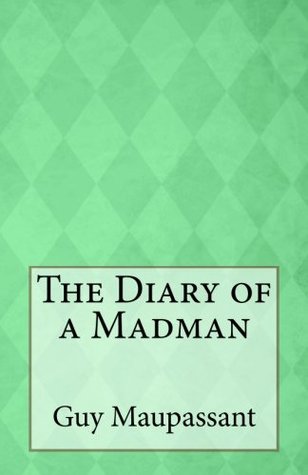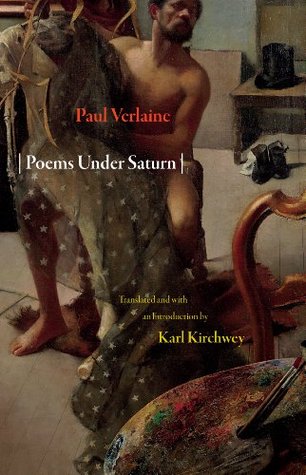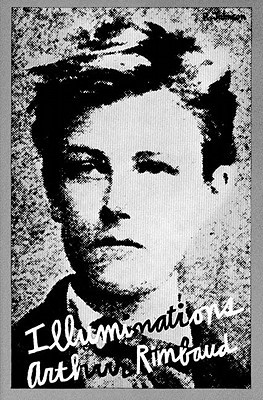Rating: ★★★★★
Proust so titillates my own desire for expression that I can hardly set out the sentence…
My great adventure is really Proust. Well—what remains to be written after that? I’m only in the first volume, and there are, I suppose, faults to be found, but I am in a state of amazement; as if a miracle were being done before my eyes. How, at last, has someone solidified what has always escaped—and made it too into this beautiful and perfectly enduring substance? One has to put the book down and gasp. The pleasure becomes physical—like sun and wine and grapes and perfect serenity and intense vitality combined.
– Virginia Woolf, The Letters of Virginia Woolf: Volume Two, 1912-1922
INTRODUCTION
 For a long time, I went to bed early.
For a long time, I went to bed early. Thus begins the most challenging novel I have read this year,
which I have been deliberately avoiding for a very long time, daunted by its renowned intricacy and sumptuous sophistication. With those simple words – to which I cannot relate since going to bed early and sleeping through the night is not something I am known for – a vast array of themes are brought to life by virtue of the magnificent and oh, lord, intellectually demanding pen of Marcel Proust; and this is hardly a complaint: it is difficult to express my gratitude, for this is the most beautiful and stimulating prose I have read in years, composed of sentences whose length left me awestruck at first but, after a while, became a familiar and endearing quality, since they are replete with charm, profundity, unparalleled versatility and an unflagging will to find the meaning of our existence in a world where time will never call a truce.
Being fully aware of this novel's complexity, I thought about getting a great Spanish edition in order to avoid overexertion and provide my brain with a chance at survival; then I reconsidered and decided to indulge my desire for a real literary challenge, ergo, I purchased this English edition brilliantly crafted by Lydia Davis, filled with helpful footnotes that enlightened me about many matters and informed me at once of some clever puns that unfortunately I wasn't in the position to comprehend due to obvious language restrictions. Clearly, I took my time... my mind, on many occasions, was somewhat dizzy with confusion which emanated from a plethora of words of all sizes and colors, trudging to the brink of linguistic fatigue, floral hallucinations and architectonic mirages; thus ended up seeking refuge in sitcoms, two TV series and articles on the Internet that ranged from Kierkegaard to the recipe for strawberry shortcake. I can't deny reading this novel was a bumpy ride, but the benefits it brought me far outweighed any benign bump or educational jolt that ultimately led me to sheer beauty and utter knowledge; for the best things in life – as the best kind of people – are not easy to find.
I need to rest for a couple of weeks, but I look forward to the time when I tackle the second volume that is already beckoning me, patiently waiting on my bookshelf (I would like to read them all with my current mind-set), that unexplored and exciting land in my hands, hoping to find again the same delightful and amusing prose that captivated me for so long.
EXPOSITION – COMBRAY
This first part of the novel was the one I struggled with the most since it was my first contact with Proust's unusual writing style, a succession of words conveying incredibly evocative visualizations that became tangible objects and landscapes by the end of an everlasting sentence; a songbook bursting with candor, with a lofty, delicious language portraying the most vivid metaphors that elevated any ordinary situation and ringed it with pure sublimity; melodies speaking of sleep, an elusive companion; of habit, a despot whose whip is somehow needed; of art, one of the many realms in which one can find the long-awaited and rather fugitive meaning of life; of country walks and the shimmering beauty of nature; a goodnight kiss that keeps being postponed and left me here, in this pearl-colored room where the perfect blend of an
andante spianato and a polonaise ignites the walls, where silence is eloquent and words are essentially needed and successfully eluded, in a state of indefatigable contemplation of my almost corporeal melange of emotions and thoughts, intoxicating the air with the scent of contradiction, extrapolating fears and disappointments as I see my own illogical detachment towards a motherly kiss that hardly ever arrives to a boy's door but I receive every single night; for memories strike the Narrator's mind and inoculate an early regret into mine, as I picture the day I no longer get that kiss once taken for granted and there is only night, a faint gleaming of distant stars and a taciturn memory inside a cup of tea, encapsulated in a madeleine, waiting to be reawaken.
But, when nothing subsists of an old past, after the death of people, after the destruction of things, alone, frailer but more enduring, more immaterial, more persistent, more faithful, smell and taste still remain for a long time, like souls, remembering, waiting, hoping, upon the ruins of all the rest, bearing without giving way, on their almost impalpable droplet, the immense edifice of memory. (51)
DEVELOPMENT – SWANN IN LOVE
The second part of the novel speaks of a refined gentleman with an artistic disposition pulsating through his veins, a man already mentioned in 'Combray', Charles Swann and his overly complicated relationship with Odette de Crécy, a persistent source of intense yet minimal joy, stifling and omniscient misery; an unbearable, almost inhumane addiction from which vivid, ardent, passionate, irrational gusts of jealousy adulterating love's nature, palpitating with despair, throbbing with terror, spring up in the face of absolute indifference; a cold-hearted state in which once inhabited her unreserved love beaming with pretended grace and a dab of frivolous peculiarity, molded after the voluptuousness of a cattleya, a devoted chrysanthemum, an obscure book, an exquisite painting rationally observed; samples of affection that make him exhale unfaltering sighs desirous of reciprocity; tokens of a torrid love that have germinated in an ethereal-sounding violin accompanied by the gentle touch of a piano, both coexisting in a large salon where the mere fleeting essence of love has been sketched, crafted by a composer who will never be consigned to oblivion, where every pain inflicted by bare existence was mentally absorbed, physically assimilated, awakening inspiration and channeling those existential wounds – whose presence has been cursed with the countenance of eternity – placing them in the midst of a maelstrom of creativity; a whirlwind in front of my weary eyes, as I contemplate the melodious renaissance of the ‘little phrase’, like a phoenix blazing in the darkness, time and time again, triggering memories of passion and loss, obsession and self-pity, the absurdity of possession; wishing for love to recede, reveling in melancholy, harboring a hope for deliverance.
He apologized for his fear of new friendships, for what he had called, out of politeness, his fear of being unhappy. ‘You’re afraid of affection?’ (223)
RECAPITULATION – PLACE-NAMES: THE NAME
Unravel every mystery, reader.
...helped me better understand what a contradiction it is to search in reality for memory's pictures, which would never have the charm that comes to them from memory itself and from not being perceived by the senses. The reality I had known no longer existed. (481)
CODA
Anesthetized beings seem to have lost the ability to see beauty in life, in people, as they continue to watch the days go by, one after another, impassively, resignedly, like a medieval prisoner gazing up at a small window that helps him realize the presence of the sun and the coldness of the moonlight – that perennial, pale glow that is whitening forlorn skyscrapers at this moment – while holding the keys to the dungeon where he has been dwelling for years but, unable to move due to some uncanny force, perhaps a comfortable fear, could never manage to open. Those days will never cease to pass, days teeming with books, music, windows, soothing memories and distant dreams, instilling life in despondent bodies; brimful of ideas, reflections, beauteous words belonging to this novel, the efflorescence of Proust’s brilliance and generosity, that furnished me with a sense of solace which helped me sleep through an entire night, after the last page was turned. Pages. Words. Words involving goodbyes when love becomes agony. Existence attached to impossibility. Childhood made of beloved places and reminiscences of diverse textures and flavors. An everlasting waiting that will remain so when facing unwavering reluctance. A purpose in life. A wretched alchemist grasping love and art, cutting through their shells in the hope of finding a droplet of essence: a hopeful distillation, a futile attempt at turning existence to meaning; a combination of both. Traces of beauty. The beauty around us. The scent of freshly brewed coffee. A pile of books. The contradiction of my emotions on paper. Staccato lines, disjointed thoughts, scribblings without any light. The sun seeping through the cracks in the blinds. Breakfast in bed. A flowering garden. The fragrance of jasmines. A motherly kiss. A nonexistent immutability which involves not only blissful times but, fortunately, ages of sorrow. Memories, madeleines; lazy Sundays in my hometown. A sonata echoing through the years. The art of appreciation in a single dewdrop, before everything withers away.
* Photo credit: Book cover via Goodreads.
Tea cup and madeleine / Patrick Forget via
tourisme28.com
Madeleine de Scudery, "Le Pays de Tendre" / CC
Les Champs-Élysées / via
Pinterest
Water Droplets / via
Nevsepic





















